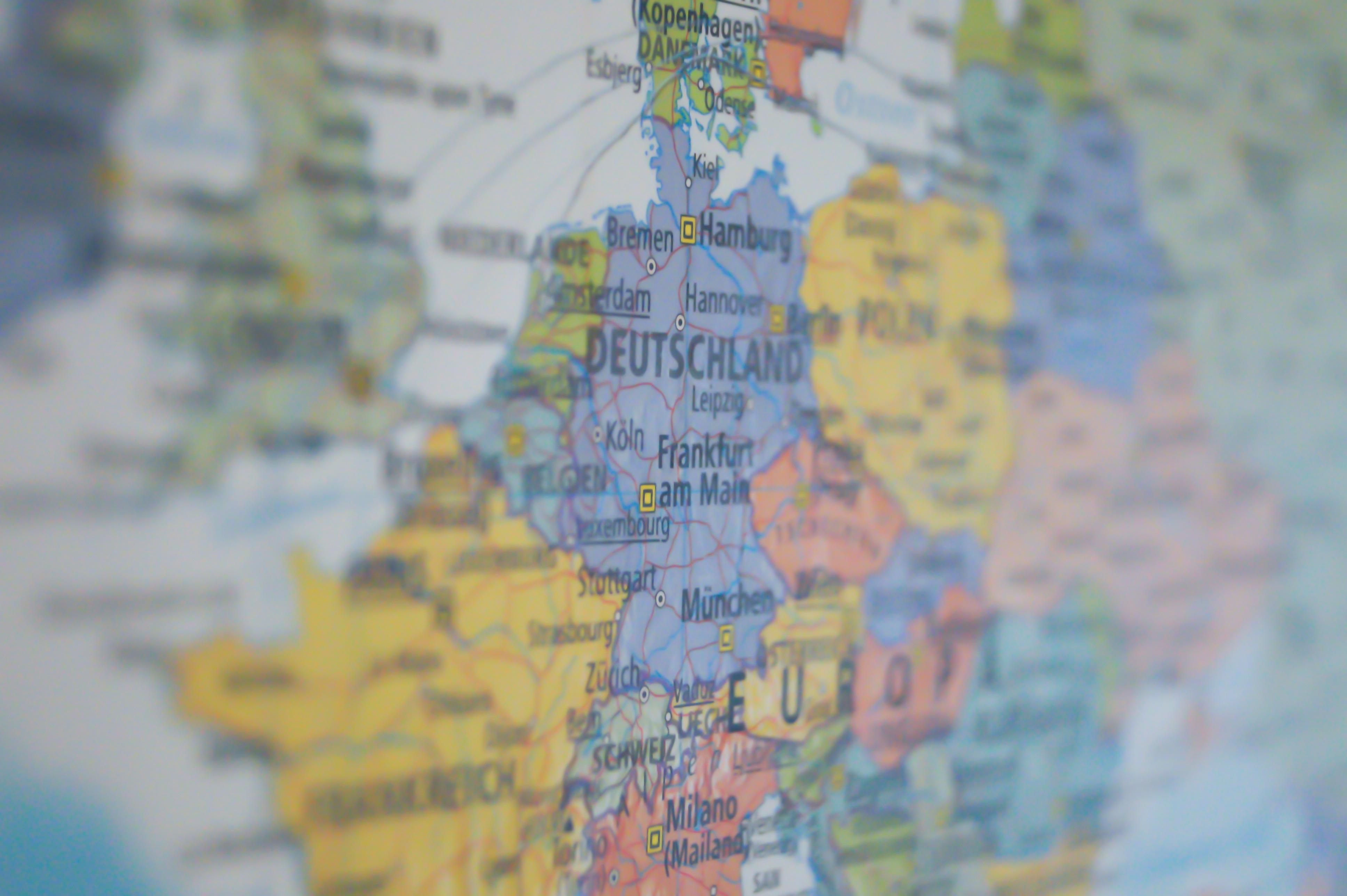People today, generally, don’t know the value and significance of a language like Latin. 80% of Latin languages have a Latin language origin and 200 million people in Europe and 1 billion worldwide speak these languages.
If non-native speakers are included, about half of the world’s population speaks one or other Latin language.
Although Latin is only the official language in one state, the Vatican City, it is in no way dead, since it lives on through the modern languages which have so richly benefited from its order, structure and vocabulary. So, many don’t know that they are actually speaking Latin when they’re speaking English, French, Portuguese or one of the other European languages.

As in the UK, academics and educationalists are saddened that Latin is not taught in all South African schools, as there are literally, a handful of learners studying the language at matric level.
To learn a new language can be quite unsettling. Although Latin and English use the same alphabet, grammar rules and phonetics are totally different.
What is very important to note, is that Latin will assist you greatly when you engage in any of the European languages which have descended from this the mother of all Romantic languages.

Latin is a Multilingual Tool
To sum up briefly:
After the Roman Empire fell, in 476AD, the common language spoken the Roman people, vulgar Latin, continued to be utilised as a vehicular language (bridge or link language) and was spoken from Romania to Portugal.
The indigenous populations at that time were bilingual, speaking their own language and vulgar Latin, which was required by the Roman authorities.
Over time, indigenous dialects combined with vulgar Latin gave rise to new languages, which are today referred to the Romance Languages. The most widely-spoken of these are French, Italian, Portuguese, Romanian and Spanish.
In the past, Latin was the preserve of only the top schools in South Africa. While this still holds true today, because, via the Internet, the study of Latin is now within the grasp of anyone who wishes to enrol for Latin for beginners.
The beauty of knowing Latin is that you will then know the origin of up to 90% of words that are employed in the Romance languages. Additionally, you will also have a pretty good understanding of the grammatical rules, conjugation and syntaxis of those languages.
South Africans are a pretty resilient and gifted bunch, in terms of their ability to speak multiple languages. As a rule, most South Africans are, at least, bilingual, because most they are exposed to more than one language from birth and, secondly, study at least two languages in primary school.
Adding Latin to your resume would see you able to converse with any European!
Latin and Learning French

French, with almost 76 000 000 native speakers and close to 270 million world-wide, is becoming increasingly relevant in South Africa.
This is so because, besides being an international language, it is also the official language of several African states and also a language of arts and culture, business and diplomacy.
In South Africa, it is currently as strength to know French because of the country’s fast growing economic, industrial and political relations with French-speaking African countries.
Looking back at the history of France and the French language in particular, one soon realises that there will be major similarities between French and Latin, given that France once fell under Roman rule when it was part of a region called Gaul (100 – 440BC).
French, similar to other Romance languages, originated from a combination of vulgar Latin and local dialects, subsequent to Gaul becoming a Roman province. So, although the French language was quickly standardised, a few main romance dialects continued to co-exist if France, namely the Oïl -, the Oc- and the Franco-Provencal languages.
Many words of French origin, which have found their way into the English language, have Latin phonemes and locution which date back to ancient Rome.
The Oïl language, for example, includes a number of dialects ( Angevin, Bourguignon, Berrichon, Champenois or Campanois, French, Franc-Comtois, Lorrain, Manceau, Morvandiau, Mayennais, Norman, Saintongeais and Poitevin, Picard, Walloon) many of which are nearly dead, with only a small number of native speakers.
In the region previously referred to as Occitanie, in the Southern Tier of France, the Occitan language is spoken and contains other idioms which had originated from Latin. These include:
- Auvergnat (auvernhat)
- Gascon: includes the Aranese and Béarnese (spoken in Spain)
- Limousin (lemonsin)
- Languedocien (lengadocian)
- Provençal (prouvençau or provençau)
- Vivaro-Alpine (vivaroapenc) also referred to as “Alpine “ or “Alpine Provençal” and, at times, regarded as a sub-dialect of Provençal.
In terms of regional languages which are still spoken today, Occitan (or Langue d’Oc) is spoken the most and still has around 800 000 native speakers (2012).
Alsatian and Breton are two other regional languages which are still spoken in France, but neither of the two are Latin-derived. The former is Germanic in origin, while the latter has a Celtic origin.
All of the dialects, mentioned above, have had an influence on the French language, which also absorbed several words from the English language.
Learning Latin Will Make Learning French Easier
Latin makes up the majority of French words, despite the language having been impacted on by quite a number of dialects.
More than 50% of all French vocabulary stems from Gallo-Roman Latin.
The conjugation, syntaxis and grammar of French are also near to those of other Romance languages.

Master Portuguese and Spanish by taking Latin Classes

Out of all the Romance language which have a Latin language origin, the Iberian languages (Portuguese and Spanish) are the most widely spoken.
The ability to speak these two languages would have you conversing with all of South America and with millions in the U.S. too. More people in the U.S. (52 million) speak Spanish fluently than in Spain itself.
A number of other romance dialects survived in Spain. The official national language, Castilian, is spoken alongside Aragonese, Catalan, Extremaduran and Galician.
Historically, Portugal and Spain were seized by the Roman Empire after the Second Punic Wars (2nd century BC), when the Romans routed the Cartage Empire. The new province was named Hispania.
All people who accepted Roman laws and rules were granted citizenship by the Roman Empire.
Although English is not a Romance language, because around 30% of English words originate from Latin, it would not be too difficult for an English-speaker to learn Portuguese or Spanish if she or he had a knowledge of Latin.
Below are a few words which share the same origin:
| Latin | English | Spanish | Portuguese |
|---|---|---|---|
| adorare | to adore | adorar | adorar |
| accidens | accident | accidente | acidente |
| grandis | great | gran or grande | grande |
| abusivus | abusive | abusivo | abusivo or abusiva |
Knowledge of Latin declensions would help. Unlike English, Spanish and Portuguese accord number and gender to nouns, adjectives and verbs.
Latin syntaxis would be similar to Portuguese, Spanish and, even, French: Subject+Verb+Object.
Titus Livius, Ovid and Cicero could have written “Illa claudit semper fenestram antequam cent” which translates in Portuguese and Spanish as:
- Ela sempre fecha a janela antes de comer.
- Ella cierra siempre la ventana antes de cenar.
Here we can clearly see how close the languages are, but there is another language which is far closer to Latin. The answer should actually be pretty obvious: Italian.
Ace Italian by Learning Latin
The Roman Empire had a major influence over the European continent, over many centuries and had a great impact in the languages of all the regions or countries that it occupied or annexed, to the extent that many Romance languages are mutually intelligible.
Toscan, not Italian as it is referred to, is Italy’s official language and has been since the founding of the Italian Republic in 1861.
Italian, like Latin, is spoken in the same way as it is written. Both languages originated in the Latium region of Central Italy. Throughout the Italic peninsula there are also a number of other languages spoken by various ethnic groups, including Etruscan, Oscan and Umbrian.

Of all the modern languages today, Italian is the closest to Latin, as reflected by the list of words written in Italian and then in Latin:
- Belligerent: bellicose / bellicosus (English also has the word bellicose).
- Cow: vacca / vacca
- Chicken: gallina / gallus
- Church: chiesa / ecclesia
- Empire : impero / imperium
- Fire: incendio / incendium
- God: dio / deus
- Heresy: eresia / haeresis
- Imitator: imitatore / imitator
- Industry: industria / industria
- Prerogative: prerogative / praerogativa
- Republic: repubblica / res publica
- To drink: bere / bibere
- To eat: mangiare / manducare
- To sleep: dormire / dormire
Notice the close link between the English words and the Latin equivalents.
Know Latin and Master Romanian Easily
While Romanian is a Romance language, its origins are rather more intricate to explain.
The country, Romania, is situated in the middle of the Balkans, on the western shores of the Black Sea. Around 105AD, the Roman Emperor, Trajan, conquered Dacia, as the region was then known. What happened next?
Roman citizens from other regions of the Roman Empire settled in the recently annexed territory and Latin was imposed as the official language. However, Rome only ruled this region for the short period (historically speaking) of 165 years.
Although its neighbouring states all speak Slavic languages, Romanians ( literally “citizens of Rome’) still communicate in a language derived from Latin. Latin words make of 71% of the Daco-Romanian language, born out of the mix of local dialects and vulgar Latin.
The examples below show that Latin and Romanian have the same etymology:
- Field: campus / câmp
- Horse: caballus / cal
- Rock: petra / piatra
- Silver: argentum / argint
- Star: stella / stea
- To plow: laborare / ara
- To sow: seminare / semana
If you already speak Italian or French, then Romanian would be easy to learn.
Romanian declensions are the same as the Latin’s, which sets it apart from all of the other Romance Languages. Romanian retained the genitive, dative and vocative cases.
If you really want to make progress in speaking any Indo-European language, make sure that you study of Latin for beginners first!
You’ll soon be speaking Latin and quoting Julius Caesar: Veni, vidi, vici!
Summarise with AI:















